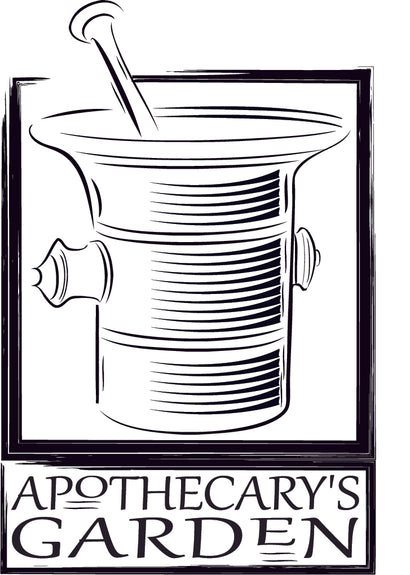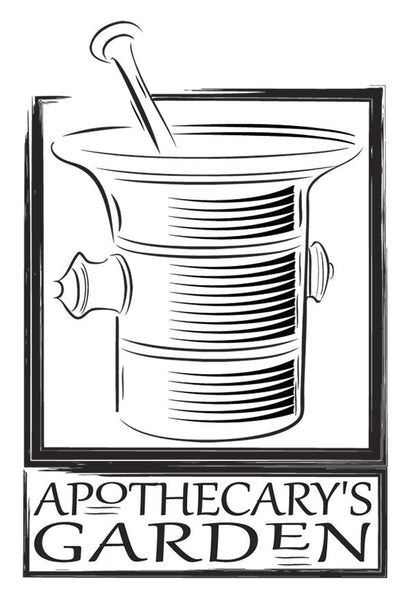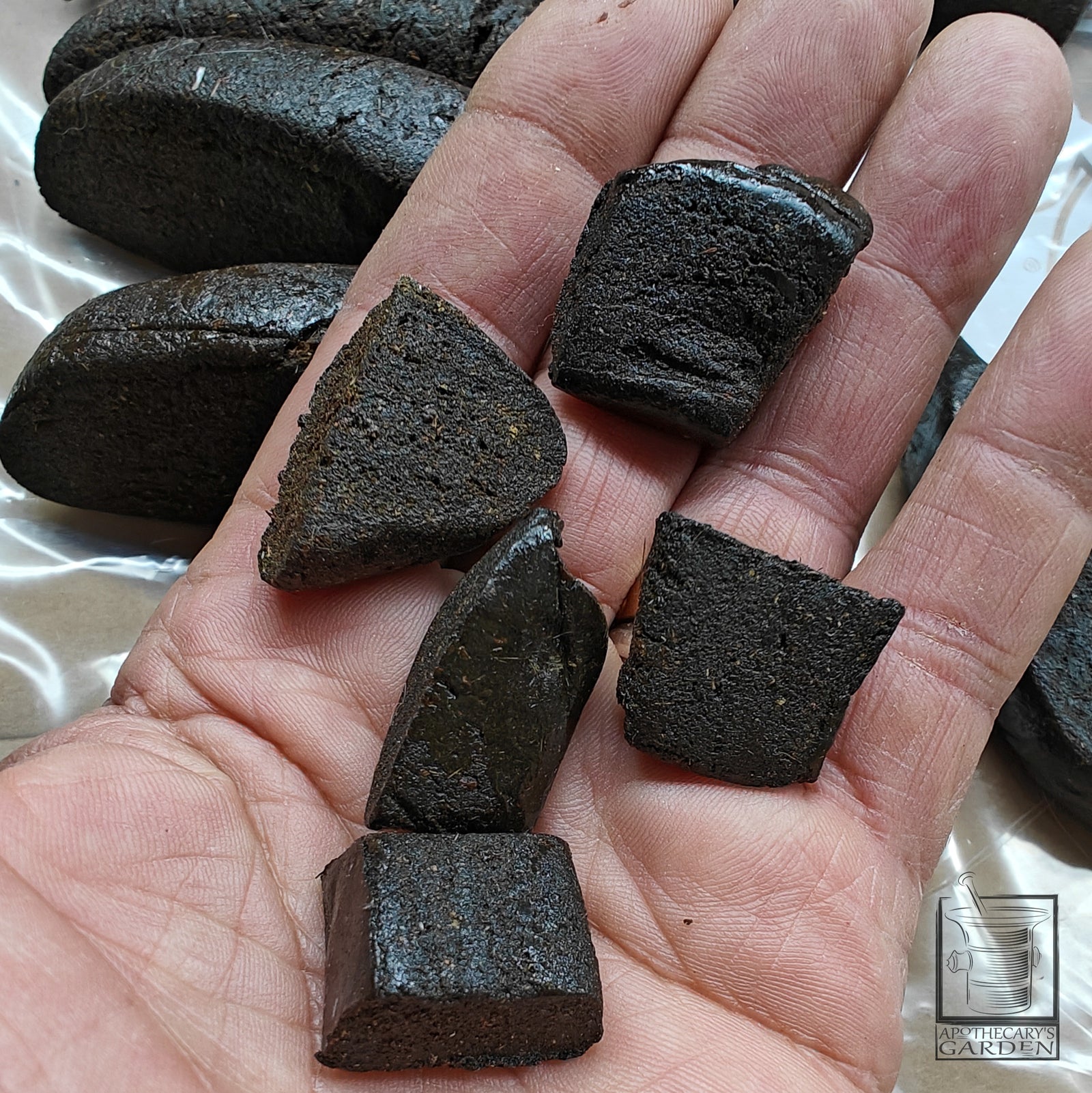
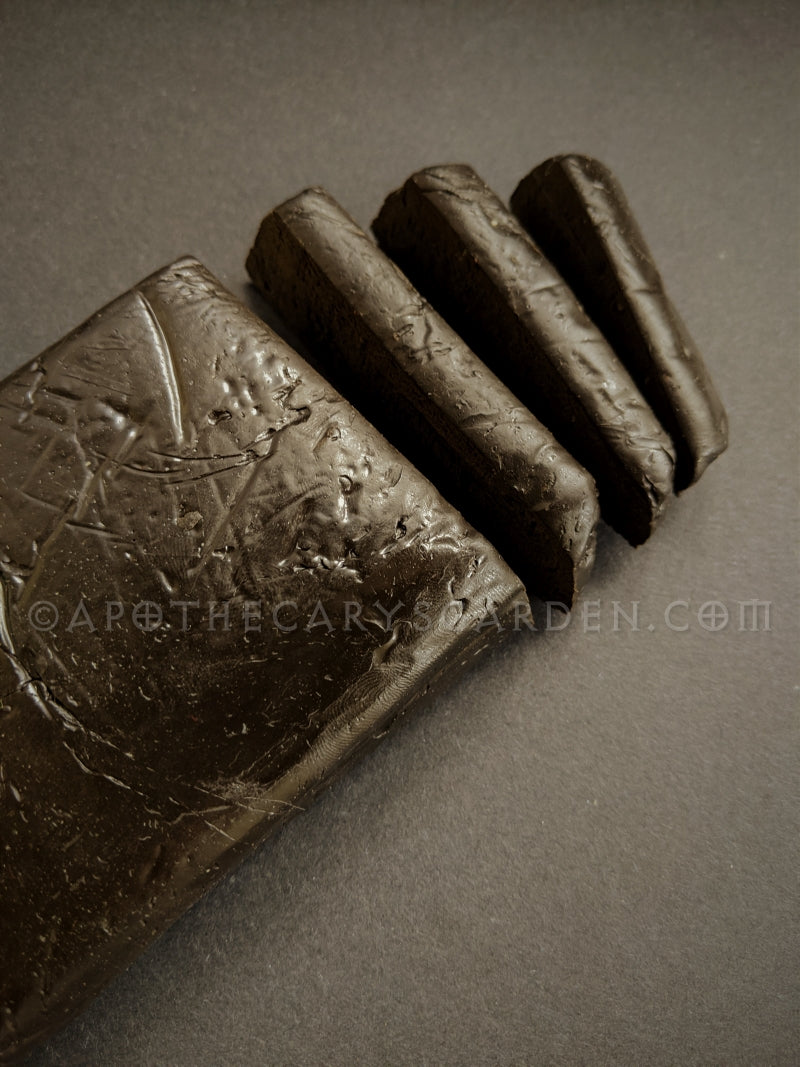
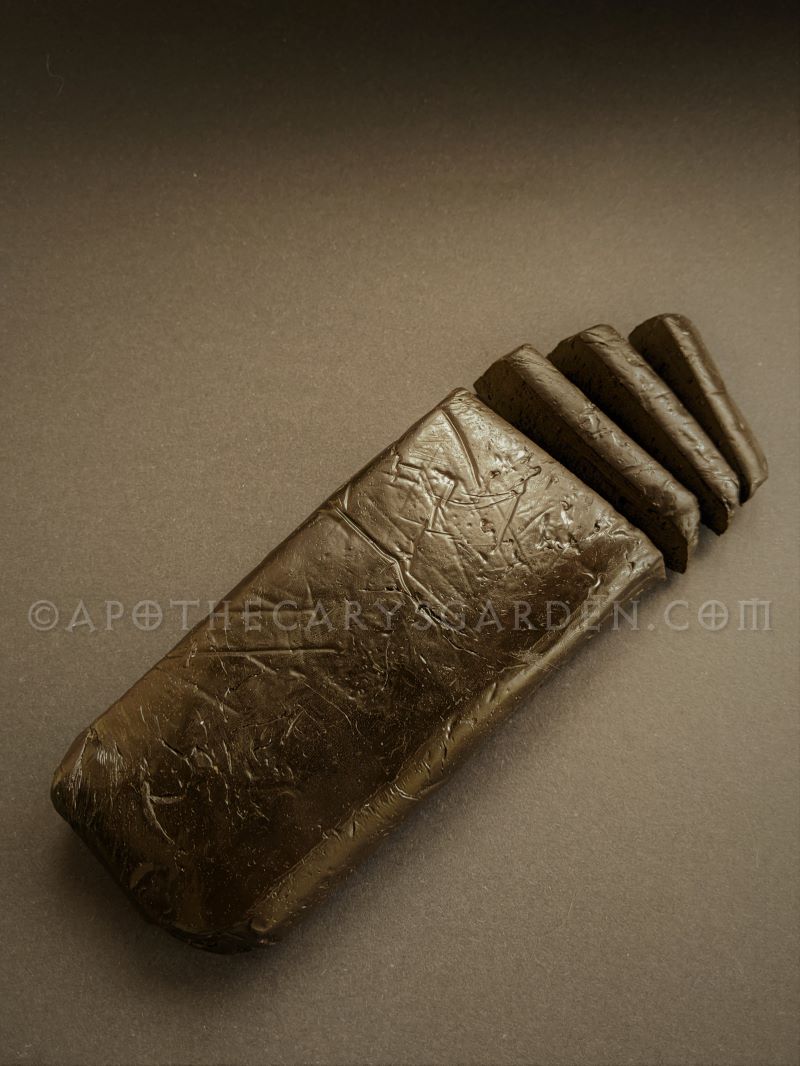
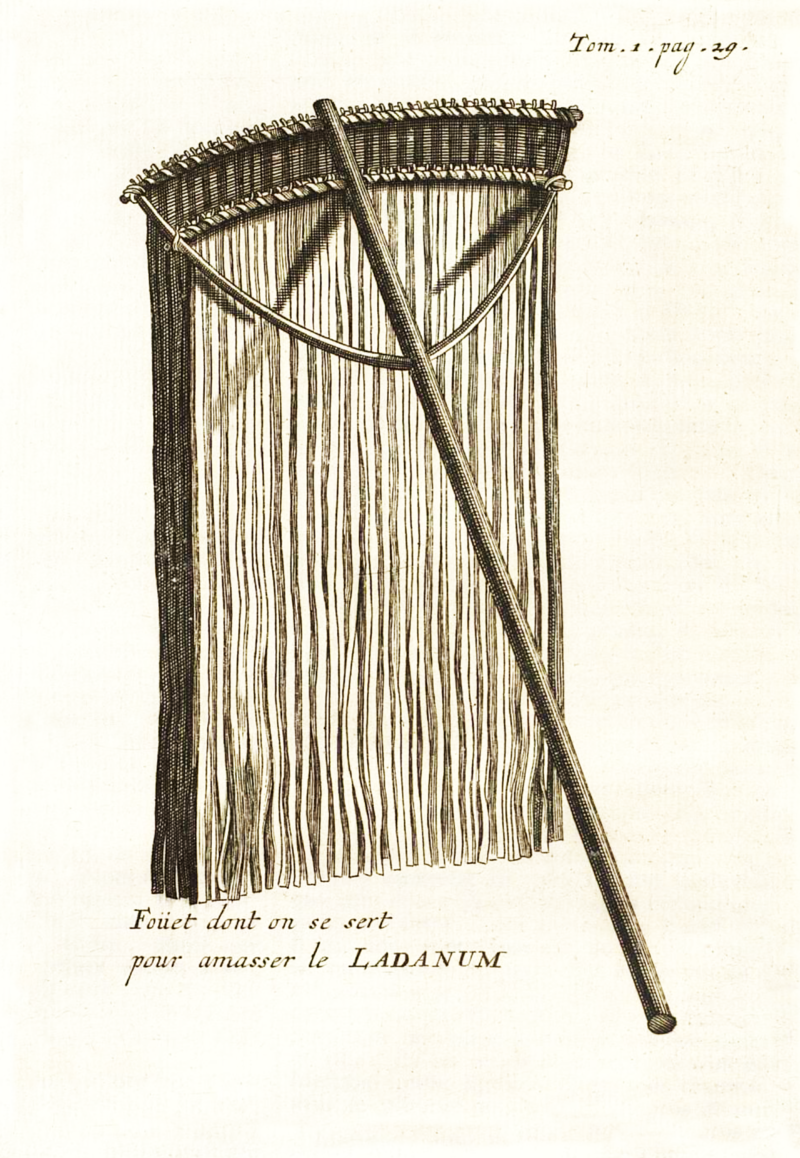
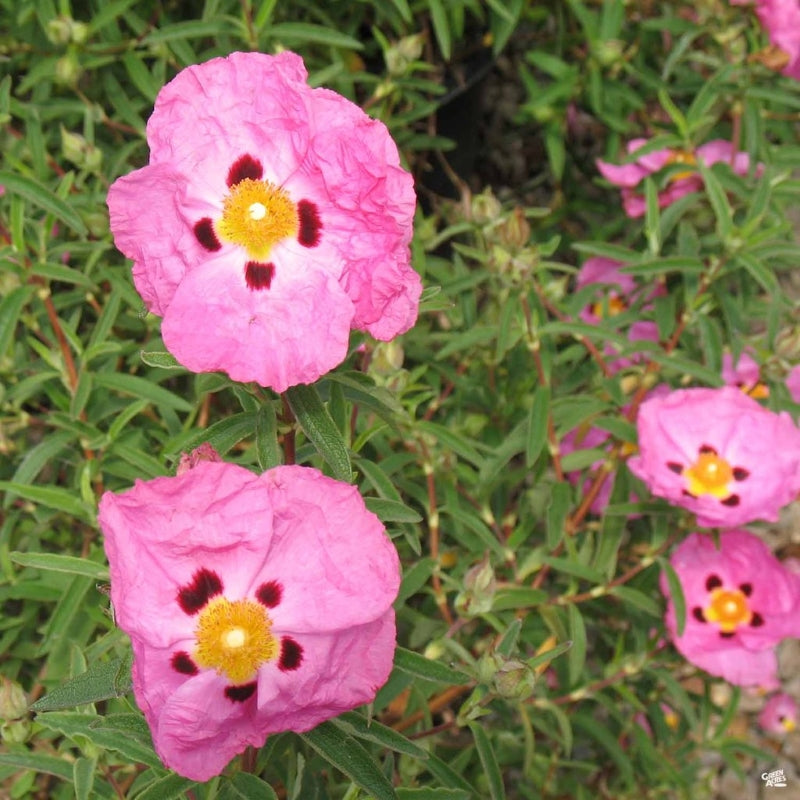
Labdanum Crete-Cistus Creticus-Modern or Traditional Harvest.
LABDANUM CRETE-Cistus Creticus-BACK IN STOCK!!
An ancient and well-known perfume and incense ingredient, Labdanum is traditionally used as a base for Amber accords and fragrances, Chypre and Oriental-style perfumes.
I have two types of Crete Labdanum!
One is collected traditionally by the villagers of Sises, and the less expensive one is collected via a common commercial harvest method. The traditional Harvest material is packaged in tins, and the modern harvest is packaged in pouches.
The Traditional Harvest of Crete Labdanum is performed using a "Ladanisterion", an ancient flail-like tool, once a year by the citizens of the village of Sises in Crete. This is a rare opportunity to own a piece of this ancient tradition while it is still practiced.
The modern harvest Labdanum is collected like the Spanish Labdanum resin, which entails cutting down the plant, boiling it and scooping the resin from the water's surface.
Some consider Labdanum the "Balm of Gilead" referred to in the Old Testament since Labdanum also grows in the ancient territory of "Gilead" in Israel.
Labdanum is also thought to be one of the ingredients in the sacred Jewish temple incense, "Ktoreth".
As described in my blog post, http://apothecarysgarden.com/2013/07/02/labdanum-beard-grooming-babylonian-style/, Labdanum has been in use for thousands of years for fragrance, medicine, incense and grooming. No one can resist a beard that Labdanum has touched.
2 species of Labdanum resin are currently available on the global market: the Spanish/Western Mediterranean Cistus Ladanifer and the Eastern Mediterranean Cistus Creticus.
The "Spanish or Western Mediterranean type is the most commonly available and is grown as an annual plant and cut to the ground late summer or early fall. The branches are boiled, and the raw resin floats to the top of the barrel, where it is collected and shipped elsewhere for processing.
Much of the Labdanum on the market is from this source, most often bought by consumers as a resinoid after solvent extraction in other countries.
Cistus resin of Crete has a different scent profile than the Spanish variety. When I inhale the aroma of traditionally harvested Labdanum resin, I also smell the hills of Crete. Summer breezes off the Mediterranean and the special aroma of the land. I feel a much more personal and intimate experience with the land and the spirit of the plant.
In the hills over the Crete village of Sises, Labdanum is collected in the traditional manner using a tool called a "Ladanisterion", (See photo above from a 1700's woodcut), made of numerous thongs strung from a bar at the end of a pole, local villagers gather on the hottest days in August and head out to the hills to collect the resin as it beads on the leaves from the intense summer heat. As the thongs of the tool are passed over the sticky bushes, the resin collects on them and is periodically stripped off by running pinched fingers or an improvised tool down their length.
The resin from each thong is then rolled into a ball and added to the collection before careful storage and preparation for sale or distillation.
This harvest is an ancient practice that has withstood the temptation of industrialization and mass production. It has little environmental impact and provides a traditional income for the local village.
This product supports cottage industry the local economy and is 100% sustainable. These harvesters are the stewards of the plants and the hills.
Caring for the income and needs of traditional harvesters/gatherers is the most direct way for us to protect our wild medicinal and aromatics worldwide.
Those who collect Frankincense, Labdanum, Myrrh and many other traditional wild harvests are ideally suited and positioned to care for our fragrant and medicinal natural resources. We have poorly managed them till now and they are quickly declining worldwide, even as our consumption increases. By purchasing from traditional harvesters we can contribute to a responsible and sustainable model of economics and ensure that these natural treasures are thriving still in decades to come.
I paid over 3 times more for the traditionally harvested Labdanum! (and I would do it again), but I cannot charge my customers 3 times more than the modern harvest. Instead, I have priced it reasonably and affordably and hope those purchasing the traditionally harvested Labdanum know that what they have is more than just a commodity. It a classic and a piece of a tradition that goes back hundreds if not thousands of years. It supports cottage industry, those who live with the plants and care about their well-being, families and small rural communities that rely on the income to get through the year. The traditionally harvested Crete Labdanum is simply put, a classic, with depth and meaning that the product of boiled sticks and twigs cannot match. It should be kept in a special place and shared with special people.
To make a seductive beard or body oil take 1 part Labdanum resin and 5 parts carrier oil of your choice. Place them in a glass vessel or mason jar in a cold water bath/double boiler. Bring the temperature of the water up to a boil. When the Labdanum softens, blend it with the oil. When it is completely dissolved, remove the jar from the water bath and let it sit till the sediment has all fallen to the bottom. You can either use it as is, pour off the clear oil, or pour the liquid through a filter such as a metal-mesh coffee filter or the corner of a pillowcase. Your fragrant oil can be used as-is or as a base for a perfume creation.
I took all my Crete Labdanum out of the shop last year when a customer pointed out that it had been adulterated with wax. (It smelled terrible when burned, and the presence of wax was obvious. It has taken me this long to find another (hopefully), more reliable supplier.
Removing your resin from the plastic wrapper may be difficult if it is sticky. My trick and workaround is to place the bag in the fridge or freezer for 15-30 minutes before separating it from its package. After chilling, it will detach easily without any material stuck to the wrapper.
Dan
Materials: Labdanum, Cistus Creticus, Balm of Gilead, Crete Labdanum.
